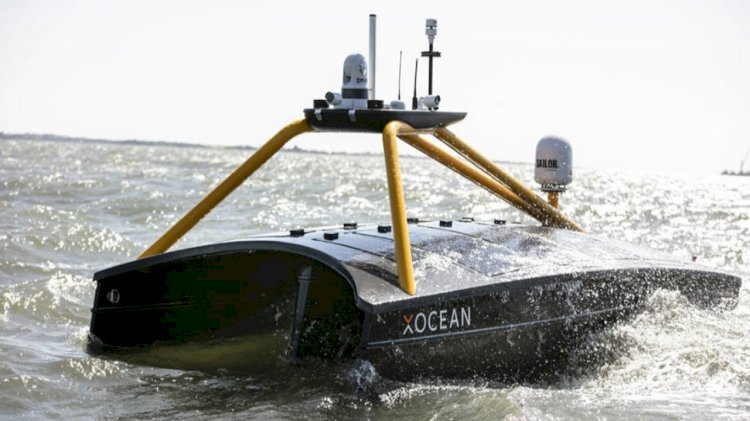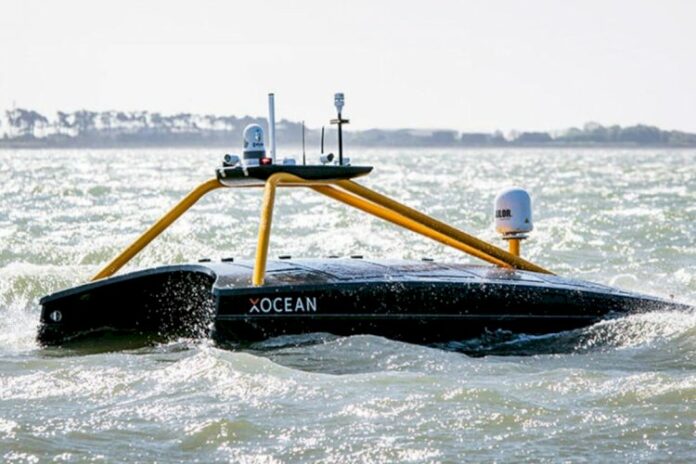The three-year-old company XOCEAN based in Ireland provides turnkey underwater data acquisition services with its growing fleet of innovative unmanned surface vessels (USVs) which deliver an unprecedented combination of safety, versatility, efficiency and productivity.
XOCEAN’s XO-450 USV is a custom-designed composite wave-piercing catamaran about the length of a typical automobile. The lightweight vessel is powered by a pair of Torqeedo Cruise 2.0 electric pod drives, with a Power 24-3500 lithium-ion battery and a lightweight micro-generator. Solar panels on deck provide efficient recharging during daylight hours.
The two electric thrusters are controlled separately to adjust the speed on each side, steering the boat on the desired course. A pair of Torqeedo Ultralight outboards at the bows enhance the vessel’s stationkeeping abilities when gathering data.
The XO-450 USVs are designed to be easily and quickly deployed. When underway, the crewless vessels are controlled remotely by qualified pilots at XOCEAN’s operations centre, which also monitors battery status and quality of the data being collected. The onboard broadband satellite transceiver provides continuous over-the-horizon connectivity.

In a recent deployment, a XOCEAN XO-450 USV completed a pioneering live seabed-to-shore data harvesting mission from an array of Sonardyne pressure monitoring transponders at the Ormen Lange natural gas field off the coast of Norway. The 30 sensors measure and record pressure, temperature and inclination data at the seafloor at 800-1,100 meters depth. The USV transited more than 160 nautical miles from Kristiansund out to the Ormen Lange field, spent 12 hours on station retrieving data from the sensors using an acoustic array and completed the return trip to Kristiansund in a total of just over three days.
The extremely low noise signature of the Torqeedo electric drives was also an essential element in the success of the mission, which used an acoustic transceiver to retrieve data wirelessly through the water, according to XOCEAN.
XOCEAN CEO James Ives said:
“Sustainability is a central value for us. Our USVs have a negligible carbon footprint, only producing about one-thousandth of the emissions of a conventional survey vessel. We are also employing offsets for all carbon produced in the delivery of our projects resulting in fully carbon-neutral survey data for our customers.”



